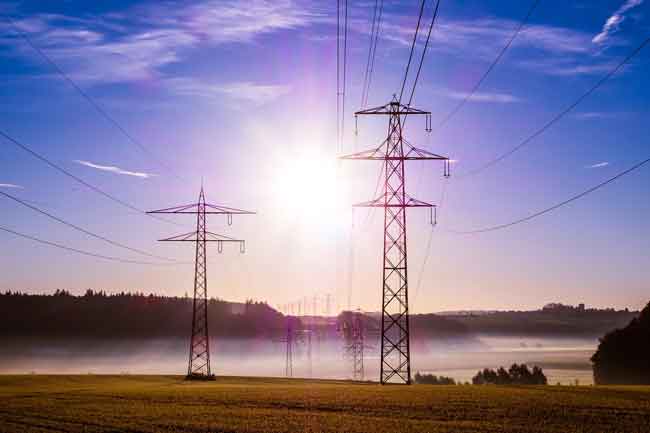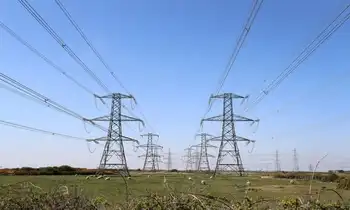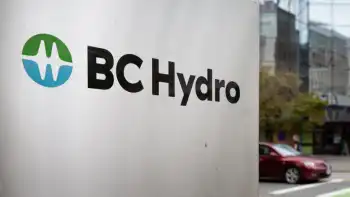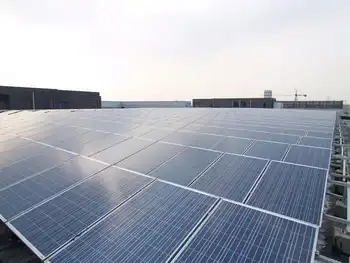Wind farm opponents turn up heat
By Toronto Star
Protective Relay Training - Basic
Our customized live online or in‑person group training can be delivered to your staff at your location.

- Live Online
- 12 hours Instructor-led
- Group Training Available
A new anti-wind group called Wind Concerns Ontario, a coalition of 22 small rural groups each fighting their own community battles, announced its creation as a "strong, unified voice of opposition" to provincial plans that would see thousands of industrial wind turbines "tearing apart the very fabric of rural Ontario."
They emphasize the "industrial" nature of wind turbines and their danger to birds and bats. They say the machines are noisy, make some people sick, kill local tourism and cause the real estate values of surrounding properties to fall.
When those complaints don't stick, they attack the technology as being a fraud. "It does not in reality produce 'green' energy, does not reduce CO2 emissions significantly and is inefficient," said Beth Harrington, spokesperson for the new coalition and head of the Alliance to Protect Prince Edward County, where several onshore and offshore wind projects are being planned.
The increasingly vocal opposition, however small compared to those who more quietly support wind power in Ontario, isn't lost on the Liberal government, which is counting on new renewable-energy projects as part of a plan to wean the province from coal-fired power generation by 2014.
In September, Energy and Infrastructure Minister George Smitherman directed the power authority to beef up an already ambitious renewable-energy plan, much of it dependent on massive new wind farms being erected across the province and on the Great Lakes.
Smitherman, who will be in Shelburne today opening Canada's largest wind farm, told the Star he's committed to engaging the public in meaningful discussions as the plan moves forward. "But we also recognize that work needs to be done to ensure that momentum on the goal of a cleaner and green energy future isn't diminished."
This will require a streamlining of rules and regulations so they better balance community concerns with the need to move projects forward, industry observers say. A practical start, some suggest, is to establish environmental pre-screening of projects to weed out the good from the bad.
Behind the scenes the government is working on such improvements, sources say, including the creation of a Green Energy Act that would give priority to renewable energy and conservation as the province updates and expands its electricity system.
Some have grown impatient. EPCOR Utilities Inc. earlier this month cancelled a $300-million wind farm in Goderich. After years of delay, the company said it couldn't wait any longer for provincial and municipal approvals, which in some cases had been slowed by a handful of protesters.
Closer to home, Toronto Hydro got a taste of things to come this week as it considers construction of an offshore wind farm off the Scarborough Bluffs. It was forced to cancel its first community information meeting because more than 400 people showed up – twice as many as the church hall could hold.
Nearly 200 people lined up outside were greeted by someone from a group called SOS Windfarms Toronto (the SOS stands for Stop Offshore) who was handing out business cards that promote a website.
Along with some valid concerns, the site also contains misleading or wrong information, such as claims that the wind farm is being promoted as the only green solution for Toronto and that 80 years of aviation data show the site is inappropriate for wind generation.
"I think a lot of people are making judgments based on information that I would say is incorrect," said Keith Stewart, an energy expert with WWF-Canada. "Rational argument can win over the majority, but it can't win over everyone."
Stewart said some ecologically sensitive locations are clearly not appropriate for wind farms, and that's part of the reason why government has to create guidelines.
But even some high-profile environmentalists have fought vigorously against wind farms, including Robert F. Kennedy Jr., who has been criticized by Greenpeace for opposing development of a farm off the coast of Cape Cod, Mass., for mostly aesthetic reasons.
Kennedy, speaking in Toronto at a gathering of utility executives, defended his position in an interview. "There are appropriate places for everything, and there are some places where people are desperate to build wind farms," he said, suggesting that it's up to developers to find willing communities. "And if you want to put them out in the water you probably want to put them out of sight."











